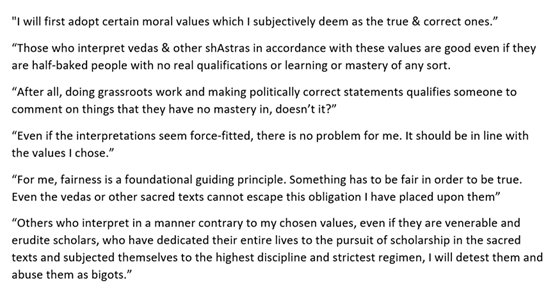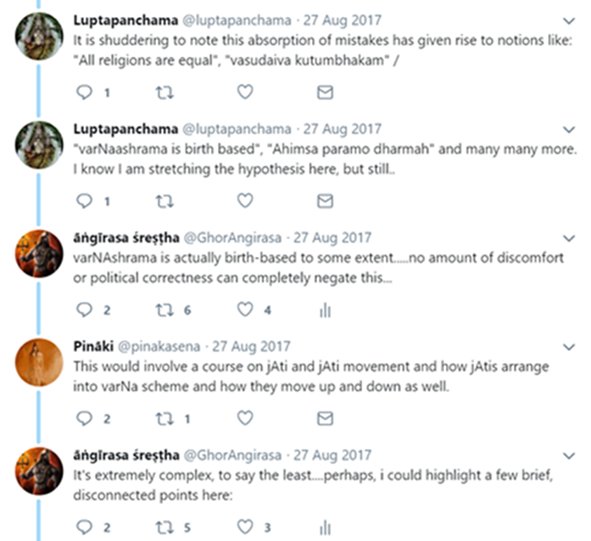7 days
30 days
All time
Recent
Popular
There are some people who follow me & take a grievously wrong approach towards matters of dharma. This is for them: See below:
If you sincerely want to understand our shAstras conscientiously, this is a dangerous attitude you ought to abandon at the very outset.

You can EITHER:
1. Wallow in self-pity, resentment, victim-hood & political correctness, follow half-baked people who make you feel good & abuse venerable AcAryas as casteists
OR
2. you can actually bother to learn the tradition for what it is.
https://t.co/ewJM1fbWmB
You can scroll up from here and then read down. But for convenience's sake, I will be posting screenshots of the relevant portions of the thread in the next few tweets.
Introduction, some basic terms relating to the topic and historical context:

brAhmaNas, kSatriyas and the vish; relationship between these three groups and the supposed, respective occupations:

If you sincerely want to understand our shAstras conscientiously, this is a dangerous attitude you ought to abandon at the very outset.

You can EITHER:
1. Wallow in self-pity, resentment, victim-hood & political correctness, follow half-baked people who make you feel good & abuse venerable AcAryas as casteists
OR
2. you can actually bother to learn the tradition for what it is.
https://t.co/ewJM1fbWmB
You can scroll up from here and then read down. But for convenience's sake, I will be posting screenshots of the relevant portions of the thread in the next few tweets.
That is a grossly simplistic view which simply does not reflect historical realities...
— \u0101\u1e45g\u012brasa\u015bre\u1e63\u1e6dha (@GhorAngirasa) August 27, 2017
Introduction, some basic terms relating to the topic and historical context:

brAhmaNas, kSatriyas and the vish; relationship between these three groups and the supposed, respective occupations:

